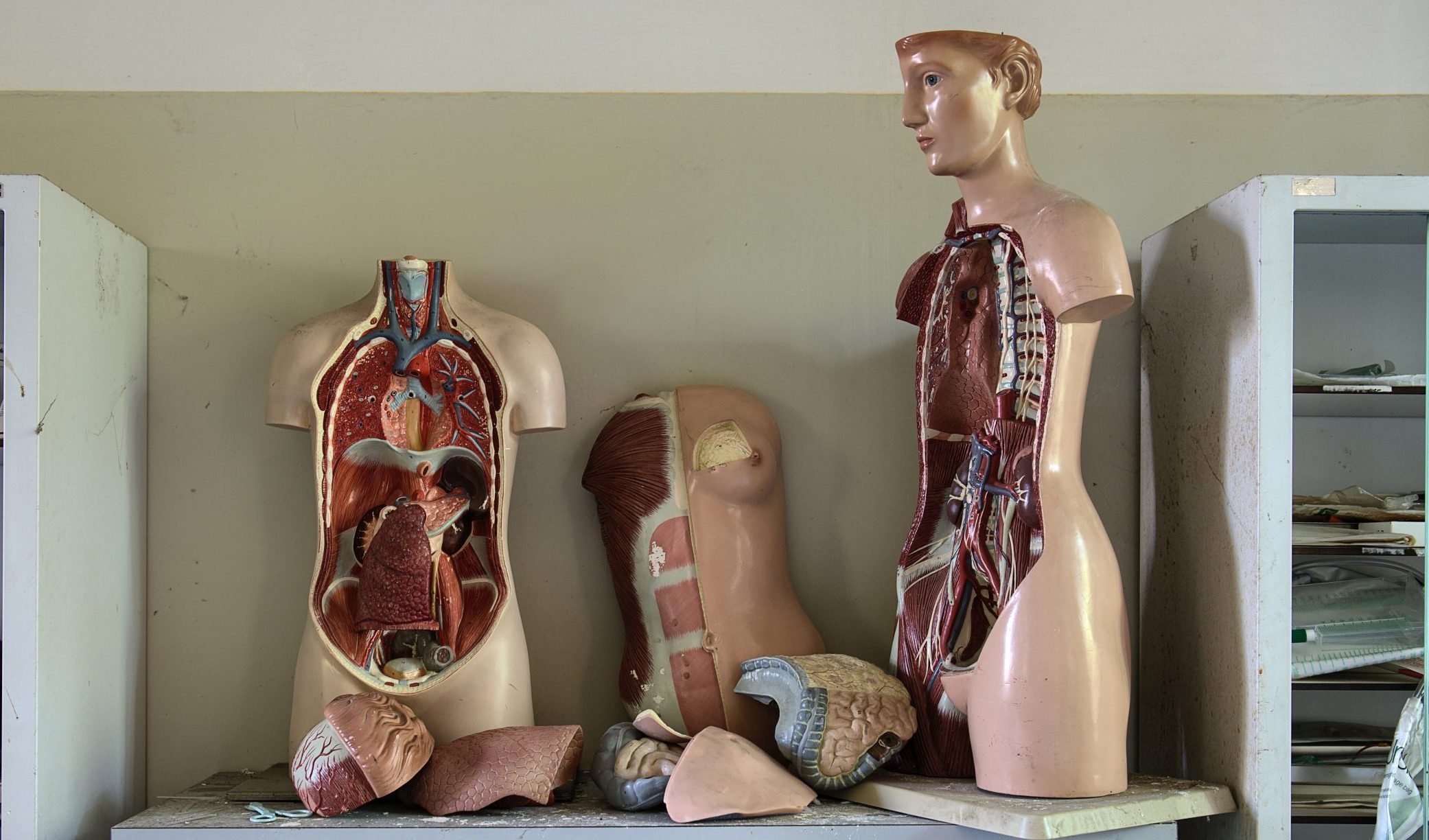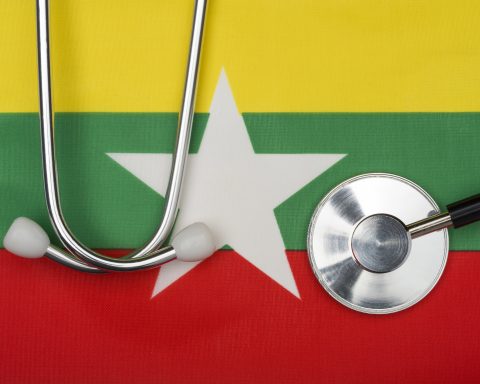 Nada Khan is an Exeter-based NIHR Academic Clinical Fellow in general practice and GPST4/registrar, and an Associate Editor at the BJGP. She is on X: @nadafkhan
Nada Khan is an Exeter-based NIHR Academic Clinical Fellow in general practice and GPST4/registrar, and an Associate Editor at the BJGP. She is on X: @nadafkhan
At a time when junior doctors are reporting difficulties meeting their costs of living, the ‘optic’ of a recent news story that medical Colleges are making profits from trainee exams is not good.1
Doctors.net.uk recently reported that some colleges, including the Royal College of Surgeons, the Royal College of Psychiatrists and the Royal College of Physicians did more than break even on exam costs.2 Exam fees can be steep, costing thousands of pounds out of pocket for trainees requiring a pass mark in order to complete specialty training. The RCGP has moved away from a London-centric, in person exam structure, but other colleges, such as the Royal College of Anaesthetists and the Royal College of Pathologists, examine candidates based on practical skills required for their specialty, requiring specialist equipment and in-person exams, adding travel and accommodation to the costs for trainees. What’s the situation for GP trainees and are medical colleges profiteering from exam fees?
Exam fees for the RCGP
The RCGP has taken a strategy of aiming for a cost-neutral budget for exams over a three year period to account for this inter-year variation.
The RCGP examination structure has been under flux in recent years partly due to the Covid pandemic and a move from an in-person exam at College HQ to a remote offering. The MRCGP exam costs currently include £470 for the Applied Knowledge Test, and £1180 for the new Simulated Consultation Assessment (SCA), which replaced the temporary Remote Consultation Assessment instituted during the pandemic. The RCGP is pretty transparent on the costs of the exams, and categorically states that the College is not using the MRCGP as a ‘source of income to fund other college activity’.3 Given that it is difficult to know precisely how many trainees will take each exam each year and pay exam fees, the RCGP acknowledges that some years they will lose money, and some years they will run at a surplus. The RCGP has taken a strategy of aiming for a cost-neutral budget for exams over a three year period to account for this inter-year variation.
The RCGP website includes a fairly detailed breakdown of the costs involved with developing and running the SCA, costs which include examiner training and costs for covering locum GPs for time out of practice for the examiner, costs for role-players, the IT platform for delivering the remote exam, and additional costs such as psychometric fees and exam development costs. Given these various expenses, the overall cost of the SCA seems pretty good value, even though the cost of over £1000 is still a substantial amount for a trainee to cover.
Colleges and profits from exams
While some colleges, like the RCGP and the Royal College of Anaesthetists, set exam fees to cover costs without making a profit, the Doctors.net.uk article suggests that the Royal College of Physicians (RCP), the Royal College of Surgeons of England (RSC) and the Royal College of Psychiatrists make a surplus on exam fees. So where does this money go?
The Royal College of Psychiatrists (RCPsych) acknowledge that income from exams can fluctuate based on numbers of trainees taking the exam, but that the College uses any as an investment in improving the content and accessibility of future exams.4 When the surplus tops out over 10%, this amount is reinvested in a trainee fund, with the Psychiatric Trainee Committee invited to make proposals on how the funds can be used to benefit trainees. It appears, however, from their last financial statement that the RCPsych are running their exams at a net deficit, with no surplus from examination income in 2020 or 2021, so it does appear that RCPsych doesn’t routinely make money off of exam fees.5
The RCP and RSC approach seems somewhat more opaque, with the RCP stating that any surplus income is re-invested ‘in the development and delivery or educational and professional development support for members’, activities that include educational events and free membership for medical students.6 The RSC reported a 4% rise in exam fee income in 2020-2021, and state that their exam fees contribute to other College costs in delivering their overall mission to ‘educate, nurture and discover for the benefit of human health’.2,7
What happens when trainees fail?
The costs are compounded for trainees who don’t pass their exams on the first effort. Exam fees are not reduced for repeated attempts at postgraduate exams across the different medical colleges. This might not concern trainees passing their exams on their first attempt, but as the MRCGP pass rates show, there is marked differential attainment in pass rates for international medical graduates and non-white candidates. This means that some groups of candidates, for instance, non-white and international medical graduate candidates, will end up paying more for their exam fees due to the costs of resits.8 Differential attainment in examination success is a problem across other colleges, with higher rates of white male candidates passing the MRCP Part 1 exam compared to female and non-white ethnicity candidates.9 Why don’t colleges reduce the fee for resits? Some of the direct exam costs, such as IT, payment for role-players and covering examiner time with a locum, apply for resits, but could, say, the RCGP reduce any of the indirect costs for repeated attempts?
What are trainees paying for?
Is an examination a service, or an income stream?
Post-graduate medical examination fees are a requirement for completing training and taking up a post as a specialty consultant. Trainees wanting to work at consultant level have no option but to take these exams and need to know what they are paying for. Are junior doctors paying for the direct costs of exam and the indirect costs of exam development, or, as seems to be the case for the RCP and the RSC, additional college events and development? Trainees need full transparency from those colleges making a surplus from examination fees.
Medical colleges have other income streams including collegiate membership fees and fees from paid training courses which can cover the costs of professional development activities. Is an examination a service, or an income stream? Where questions arise about exam fee surpluses, specialty trainee doctor committees should question, and be involved with how the money is spent or re-invested in their training. At a time when junior doctors are fighting for pay restoration, paying for more than what an exam is worth seems a cost too high to swallow.
References
- Dire states of junior doctors’ finances revealed in BMA survey: British Medical Association media team; 2022 [Available from: https://www.bma.org.uk/bma-media-centre/dire-state-of-junior-doctors-finances-revealed-in-bma-survey.
- Revealed: Royal colleges making surpluses from trainee exam fees 2023 [Available from: https://news.doctors.net.uk/news/6XXSKGYmFUDtZR5ZGMF570.
- Update on fees for the SCA examination: Royal College of General Practitioners; 2023 [Available from: https://www.rcgp.org.uk/blog/sca-examination-fees-update.
- Exam news and updates: Royal College of Psychiatrists; 2023 [Available from: https://www.rcpsych.ac.uk/training/exams/exams-news-and-updates.
- Impact Report and Financial Statements 2021 [Available from: https://www.rcpsych.ac.uk/docs/default-source/about-us/what-we-do/annual-reports/rcpsych-impact-and-financial-report-2021.pdf?sfvrsn=9c03ad34_2.
- Changes to MRCP(UK) Part 1 and Part 2 written examination fees in 2021: Royal College of Physicians; 2021 [Available from: https://www.rcplondon.ac.uk/changes-mrcpuk-part-1-and-part-2-written-examination-fees-2021.
- The Royal College of Surgeons of England: Annual report and accounts 2021-2022. 2022.
MRCGP: Recorded Consultation Assessment (RCA): Interim report: Royal College of General Practitioners; [Available from: https://www.rcgp.org.uk/mrcgp-exams/recorded-consultation-assessment. - MRCP(UK) Part 1 2022 Performance report: Membership of the Royal College of Physicians of the United Kingdom; [Available from: https://www.mrcpuk.org/sites/default/files/documents/Pt%201%202022%20Annual%20Performance%20Report.pdf.
Featured photo by Mathieu Stern on Unsplash








